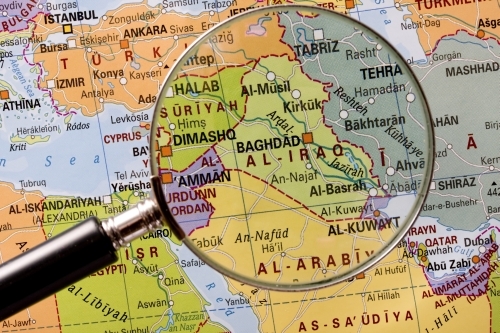The EU-Iraq Partnership and Cooperation Agreement (PCA), signed on 11 May 2012, has been termed “historic”, as it marks the first ever contractual relationship between the EU and Iraq. As of August 2012, parts of the PCA have been provisionally applied pending ratification of the agreement as a whole.
Key features of the PCA

The PCA provides a legal framework for regular high-level political dialogue, trade and investment, and sectoral cooperation in a wide range of areas, such as health and education, energy, environment, and in the field of justice, freedom and security. It contains elements which strongly reflect the fragile security environment of a post-conflict Middle East country engaged in the transition to democracy and stability, which the EU is committed to supporting. Additional emphasis has thus been placed on provisions concerning respect of human rights, combating terrorism, and countering the proliferation of weapons of mass destruction as well as small arms and light weapons. In case of violation of the PCA’s “essential elements” a suspension clause empowers either party to take appropriate measures immediately in accordance with international law.
The EU firmly supports Iraq’s reintegration into the international economy and more specifically its WTO accession, which has been under discussion since 2004. Therefore, this non-preferential agreement contains a sizable trade pillar incorporating basic 1994 GATT rules, such as most-favoured-nation treatment and national treatment as well as a WTO-modelled binding dispute-settlement mechanism. It is aimed at facilitating market access in public procurement, services and establishment and investment. So far, EU-Iraq trade relations have resulted in a surplus in favour of Iraq. EU imports from Iraq consist almost entirely of oil, whereas EU exports to Iraq are more diversified and include machinery and transport equipment, chemicals, food and live animals.
Energy cooperation
The PCA’s energy provisions enhance the 2010 Memorandum of Understanding (MoU) on Strategic Partnership in Energy, taking into account Iraq’s huge potential to become a vital energy bridge in the Southern Gas Corridor. So far, the volatile security situation in Iraq has limited its ability to increase gas production. Given the critical security situation in Syria, the only possible transit route for Iraqi gas supplies to Europe, Iraq’s export capacity is further constrained.
Future challenges
Since Iraq is not party to the Statute of the International Criminal Court (ICC) although it is considering accession, the EU’s commitment to provide support features prominently in the PCA. Iraq is also not party to the 1951 Geneva Refugee Convention or its 1967 Protocol covering the non-refoulement principle. Therefore, Statewatch has criticised the inclusion of a readmission clause in the PCA. This clause is limited to Iraqi citizens illegally resident on EU territory and EU citizens illegally resident in Iraq, but may be complemented by a separate agreement regulating specific procedures and obligations for readmission, possibly including third-country nationals. On 23 June 2012, the Iraqi Parliament prohibited forced returns of rejected asylum-seekers from Europe to Iraq for security reasons. In 2011, 8 955 Iraqis were granted international protection in the EU, with recognition rates at first instance ranging from 2.1% in Greece and 2.6% in Cyprus to 55% in Malta.
EP position
In his recommendation on the PCA, rapporteur Mario Mauro (EPP, Italy) stresses the need for national reconciliation in Iraq and support to be given to consolidating inclusive political and institutional governance within a democratic, federal and pluralist state based on respect for human rights and the rule of law.








[…] other two plenary briefings were dedicated to EU external policies. We wrote on EU-Iraq Partnership and Cooperation Agreement signed in May 2012, and EU-Mercosur ongoing negotiations. To round up with external policies, we […]